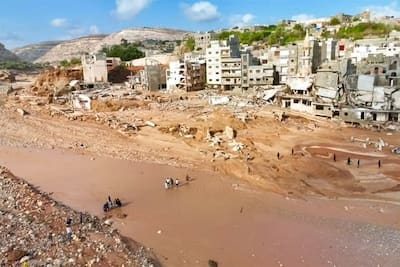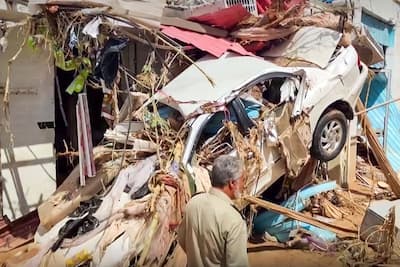
The head of the United Nations World Meteorological Organization said on Thursday that most of the thousands of deaths resulting from floods in eastern Libya “were avoidable.”
• Read also: What we know about the deadly floods in Libya
• Read also: The disaster in Libya: pictures showing what happened before and after it on the ground
• Read also: More than 5,300 killed in Derna floods
Petteri Taalas said, during a press conference in Geneva, that if there had been better coordination in this country torn by a serious political crisis, “they could have issued warnings, emergency management services could have evacuated people, and we could have avoided most of the human casualties.” .
Tsunami-sized flash floods hit eastern Libya on Sunday, killing at least 4,000 people and leaving thousands missing.
The rising water levels destroyed two dams upstream of the city of Derna, and the waters swept away entire groups of homes. According to Mr. Taalas, the chaos in Libya – including the meteorological services – contributed greatly to the scale of the disaster.
He stressed that the years of internal conflict ravaging the country “largely destroyed the weather monitoring network,” as well as computer systems.
He added: “Floods occurred and no evacuations took place due to the lack of appropriate early warning systems.”
He added that if evacuations had taken place, the number of casualties would have been much lower.
In fact, a curfew was declared in several towns in the east of the country, including Derna, forcing residents to remain in their homes.
“Of course we cannot completely avoid economic losses, but we could also have reduced these losses by providing appropriate services,” he said.
Libya’s National Meteorological Center (NMC) issued early warnings of severe weather conditions 72 hours in advance and notified government authorities via email, urging them to take preventive measures.
The authorities in eastern Libya declared a state of emergency on Friday and established a crisis management unit.
But the World Meteorological Organization said it was “unclear” whether “(warnings) have been disseminated effectively.”








